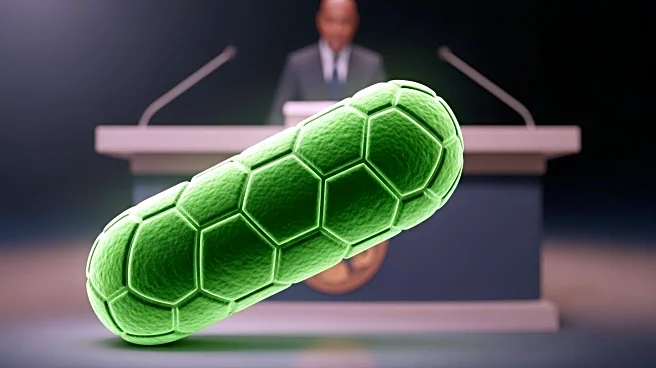What's Happening?
Researchers from the Yong Loo Lin School of Medicine and Central South University have engineered a modified strain of Salmonella bacteria to combat cancer. The bacteria are injected into tumors, triggering an immune response that reduces tumor growth. The study, conducted on mice with colorectal cancer, shows promising results and may pave the way for living drug therapies in cancer treatment. However, there are concerns about potential risks, such as unintended infections and interactions with the microbiome.
Why It's Important?
This development represents a significant advancement in cancer treatment, offering a novel approach that leverages the body's immune system to fight tumors. The use of genetically modified bacteria as therapeutic agents could revolutionize cancer care, providing more targeted and effective treatments. However, the potential risks associated with living drugs, including safety concerns and unpredictable interactions, highlight the need for careful evaluation and rigorous testing before human application.
What's Next?
Further research is needed to assess the safety and efficacy of this approach in humans. Clinical trials will be essential to determine the potential of engineered bacteria in cancer therapy. The scientific community will continue to explore the possibilities of living drugs, balancing innovation with safety. The success of this research could lead to new treatment paradigms and expand the use of biological agents in medicine.
Beyond the Headlines
The concept of living drugs challenges traditional views on medical treatments and raises ethical questions about genetic engineering and its implications for human health. The integration of bacterial therapy with immune system activation may lead to more sophisticated cancer treatments, but also requires careful consideration of the long-term effects and ethical dimensions.









